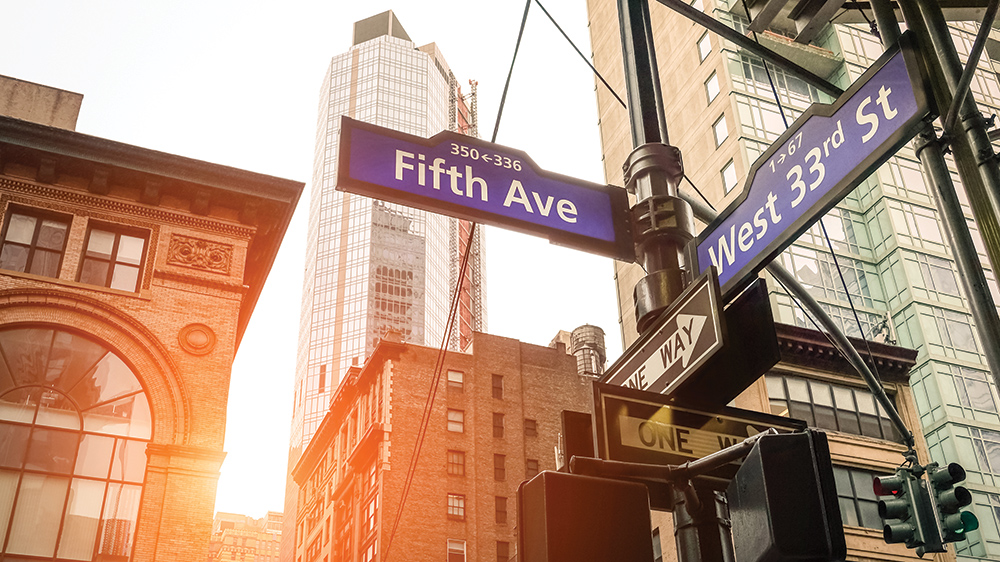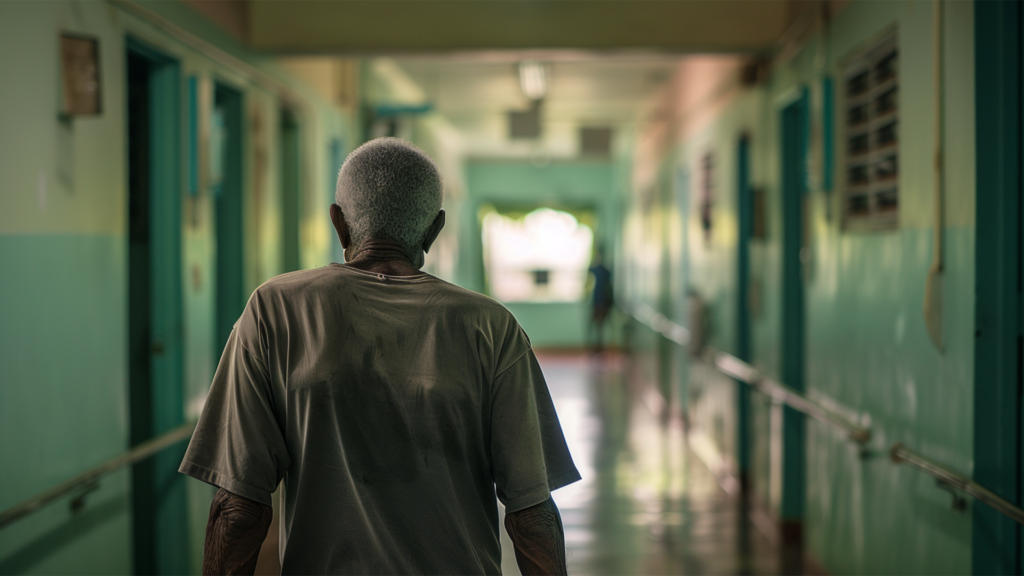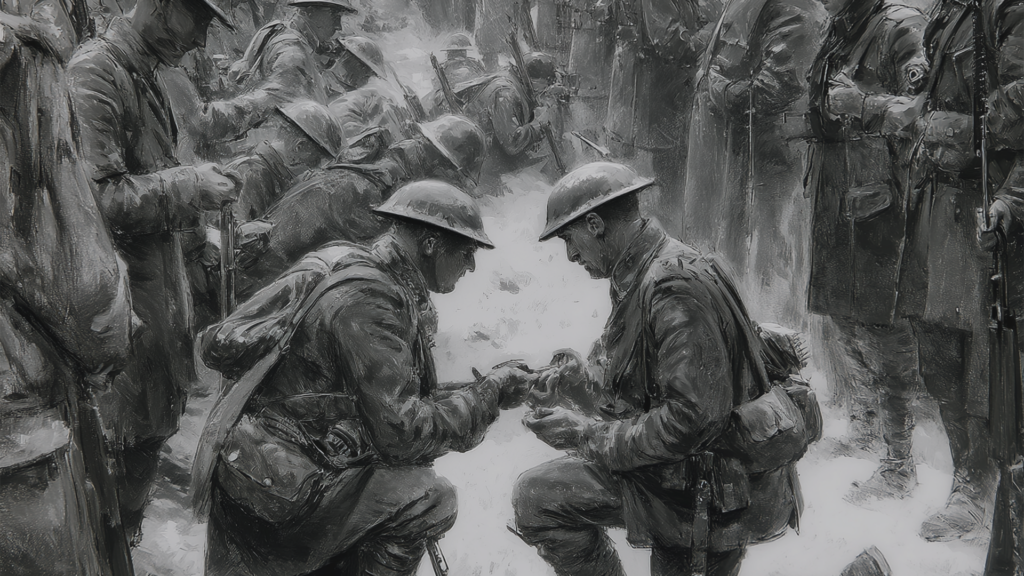I’ve been speaking in New York City a lot lately. I’m not sure why. It’s just where the invitations have come from. And that’s all good with me. I’ve spent time in the Bronx, Brooklyn, Queens and Manhattan. The only New York City borough I haven’t been to is Staten Island—but surely that can’t be far away?
Whenever I’m in New York City I think back to 1978—the year my family first arrived in America on a Pan Am jumbo jet from London. Back in those primitive days, they showed one movie in the economy cabin. It shone from a distant screen that always seemed to have excessive colour saturation so everything and everyone looked a little orange. You never knew what you might get—a soppy love story maybe or some sort of obscure arty film. It was movie roulette for the ‘tween I was at the time. But on that flight, I hit the jackpot because the good folk at Pan Am showed, wait for it, Saturday Night Fever! You simply could not get a more ‘70s moment than flying between London and New York on a Pan Am jumbo watching John Travolta strut his funky stuff to the Gibb brothers’ falsetto howls of “Stayin’ Alive”.
I had the long hair, bell bottoms and all those Bee Gees disco tunes swirling in my head as we got off the plane in Newark, New Jersey, and trekked over to Queens to stay with a beautiful Jamaican family my uncle knew from his days working in the West Indies. The next day we headed for the heart of the City, wide-eyed and just a little nervous.
None of us had been to the US before, and we were dazzled by New York in all its gritty 1970s glory. It was a very different place back then. The blackout the previous year resulted in widespread looting, crime rates were through the roof and the city reeked of faded glory. So much so that struggling poets and obscure artists could still afford to hold up in the Chelsea Hotel or a loft in Greenwich Village, and musicians with strange names like Talking Heads and Lux Interior could eke out a living playing gigs at the tiny CBGB music club. CBGB is long gone now, the Chelsea Hotel is getting a full revamp, and you’d better be an investment banker or corporate lawyer to afford a loft anywhere within miles of Greenwich Village today.
My dad was as excited as I was to be in the mythical city he’d heard about his whole life. Going up the Empire State Building, visiting Central Park, seeing the Statue of Liberty. It was all mind-blowingly exciting. And then, as we wandered the streets of Manhattan, we turned the corner onto Fifth Avenue, and my dad launched into song.
There were three distinct things about my dad’s singing. He was the most enthusiastic singer. He was the loudest singer. And he was the most awful, atonal singer you’ve ever heard. You’d know that if you ever stood near him at church. His particular expertise was to launch into a hymn at full atonal volume. Then, a few lines in, trail off as his immense intellect found something more interesting on which to concentrate. Only to come roaring back with the volume set at 11 when you least expected it. I recall little old church ladies literally leaping in fright as a result.
Some might find the hard-bitten New York sidewalk an inappropriate place for an impromptu performance, but not my dad. As a kid he’d seen American GIs visit Australia on their way to fight side-by-side with Anzacs in the Pacific, and he’d learned some of their songs. One he was particularly fond of described how these young guys would come back and parade with pride after vanquishing all before them.
Of course, many never did. They fell in New Guinea, Guadalcanal, at Midway, Iwo Jima, Okinawa, or any of the other innumerable places young Allied troops died fighting for the ideal of freedom. But some saw their dream come true, and my dad summoned all the exhilaration anyone could at their memory when we turned onto Fifth Avenue and he began belting out the Andrews Sisters anthem anticipating their moment of glory:
There’s going to be a Hallelujah Day
When the boys have all come home to stay
And a million bands begin to play . . .
And they’ll come marching down Fifth Avenue
The United Nations in review
When this lovely dream has all come true,
We’ll be dancing the victory polka!
“Cut it out, Dad!” I implored him. We were in New York City—the hippest place on the planet. I wanted to be cool. Make the scene. Be the dude. Instead, I was walking beside a rotund middle-aged man singing the most ridiculous song in history at a volume that caught unwelcome attention in spite of the whirl of traffic and distant sirens.
It was genuinely the most painful experience any ‘tween could have. I know—my girls have informed me as much! Because we’ve walked together along Fifth Avenue five times in the past couple of months. And every time we do, I sing that old song. Because what was once cringeworthy, now lives in my heart as a warm memory. And maybe it will be for my girls sometime. So far, however, that seems rather unlikely . . .
Time is a strange leveller. Whether World War II servicemen were killed in action, or returned safely to parades on Fifth Avenue or George Street, Sydney, most have gone to their rest now. As has my father and many of his contemporaries. And, I suppose if time continues, whether we live long or short, high or low, here or there, the same fate awaits us all. Which could make us all nihilists—defeated by the inevitability of our own fate. But there is something else my father left with me. [pullquote]
Dad talked a lot. It wasn’t like the conversations I had with other people. There wasn’t a huge amount of give and take. Rather, he lectured me on whatever topic he was focused on at that particular moment. I didn’t mind. Whatever he had to say, it was never boring—even if I’d heard it a hundred times before. And there were many repeating loops—messages I heard over and over and over again—whole sermons I could repeat from memory, or stories he related that I could retell word for word. One sermonette I recall most distinctly.
“James, I want all my boys to be in heaven. No matter what it is you do, as long as you end up there, that’s what matters.”
There was never a question whether heaven existed. Nor whether it was available to us. Jesus gave His life to open the door to us—He gained the victory. And it is only a matter of time until we’ll be marching together in the greatest victory parade in history in the exquisite brilliance of the home He has made for us. As He promised before He gave His life for us:
Let not your heart be troubled: ye believe in God, believe also in me. In my Father’s house are many mansions: if it were not so, I would have told you. I go to prepare a place for you. And if I go and prepare a place for you, I will come again, and receive you unto myself; that where I am, there ye may be also. (John 14:1-3)
I believe by faith that one day I will be in heaven. And when I get there, I’ll find my dad and we can walk again arms around each other, down the broad golden avenues where the streets have no name. I know that our imperfections will be remedied in heaven. But I do hope not quite all. Because, as we walk together then, I hope my dad will stand up tall, open his mouth wide and let loose with abandon. And when he does, I hope to hear that old familiar singing voice, as atonal as ever, alternating between loud bellows and distracted mumbles, every oddity in all its glory. Because of all the beautiful voices I’ve ever heard, there’s none I long more to hear again than my father’s.
As that silly old song says:
There’s going to be a Hallelujah Day
When the boys [and girls] have all come home to stay.
James Standish writes, speaks and consults from Washington, US, particularly in the area of religious liberty.






